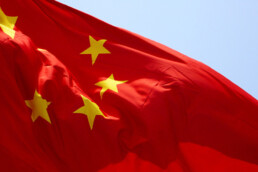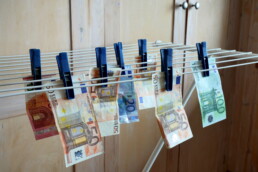NEWS
by attorney at law Dr Rafael Brägger
Answers to contentious legal issues surrounding the 2022 Football World Cup in Qatar

Football is a billion-dollar business. It is not surprising, therefore, that attornies at law are often involved in disputes concerning the sport. Three of them, which have come into the public eye in connection with the Football World Cup in Qatar, will be legally assessed below.
1. The near last-minute exclusion of Ecuador: the football associations of Chile and Peru, who both wanted to inherit a Football World Cup starting place, accused Ecuador of having used an ineligible player, Byron Castillo, in 8 qualifying matches for the 2022 Football World Cup. Castillo’s Ecuadorian passport was, according to the serious accusation, forged. The Court of Arbitration for Sport (CAS) in Lausanne ruled on 8 November 2022 – less than two weeks before the opening match of the Football World Cup (with Ecuador participating) – that the Chileans and Peruvians were right, but that Ecuador should nevertheless remain in the Football World Cup table. However, Ecuador will receive a deduction of 3 points for qualifying for the 2026 Football World Cup. According to CAS, the date and place of birth in the player’s passport were wrong, but Byron Castillo was still Ecuadorian and therefore eligible to play for Ecuador. To be on the safe side, Ecuador left the player at home for the 2022 Football World Cup…
2) The last-minute beer ban: Two days before the opening match, the Qatari authorities decided that the sale of (alcoholic) beer around the Football World Cup stadiums would not be allowed. This was after it had been communicated in September 2022 that the sale of beer before and after the match would be permitted to fans with a valid match ticket. From a legal point of view, this short-term decision affects two contracts: on the one hand, the host contract between the world football association FIFA and the Qatar Football Association and the local organising committee, and on the other hand, the sponsoring contract between FIFA and its advertising partner “Budweiser”. However, FIFA and the Football World Cup organisers hardly have to fear any consequences due to this decision: Both contracts stipulate by default that decisions of the local authorities must always be respected and take precedence, without this leading to claims for damages by the parties concerned.
3. The (alleged) last-minute ban on the “One Love” armband: several teams (including Germany and Switzerland) planned to have their captain wear an armband with the words “One Love” to promote tolerance and diversity. However, shortly before the matches of these teams, FIFA informed the federations concerned that they would face sporting sanctions if they used this armband. What had happened? The Laws of the Game – which are not issued by FIFA, but by the independent football rule-maker “IFAB” – stipulate that equipment (of which the captain’s armband is a part) “may not have political, religious or personal slogans, statements and images”. FIFA also provides captain’s armbands to teams for the Football World Cup according to tournament regulations, which must be used during matches. This rule has been known for years (while the “One Love” armband, as far as can be seen, was never approved by FIFA), which is why the furore over FIFA’s alleged sudden about-turn (which went as far as accusations of intolerance) is incomprehensible.








